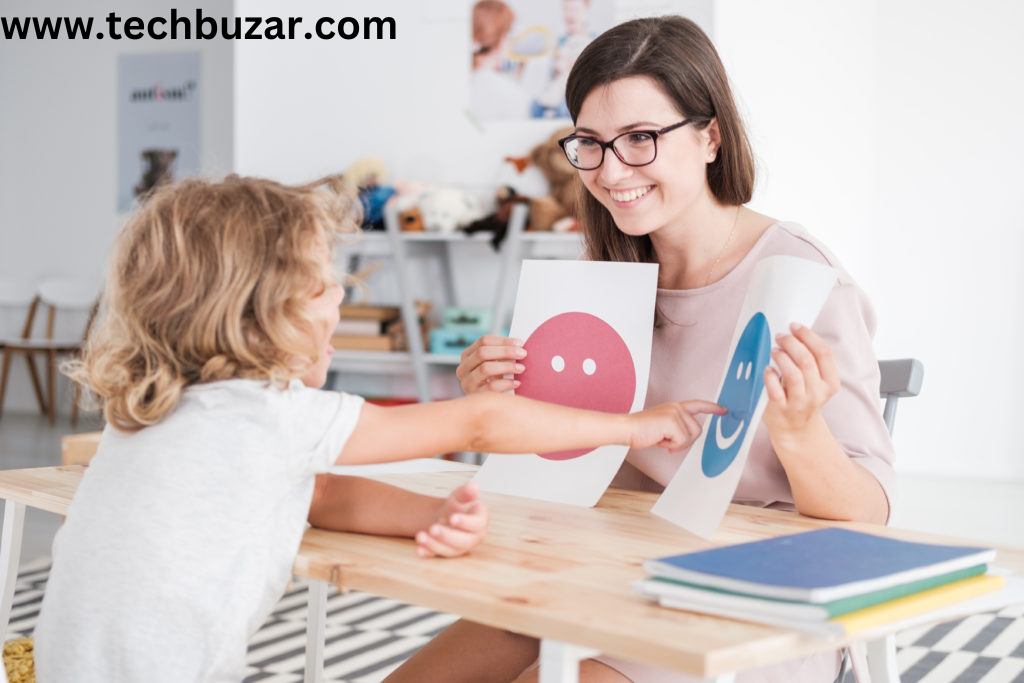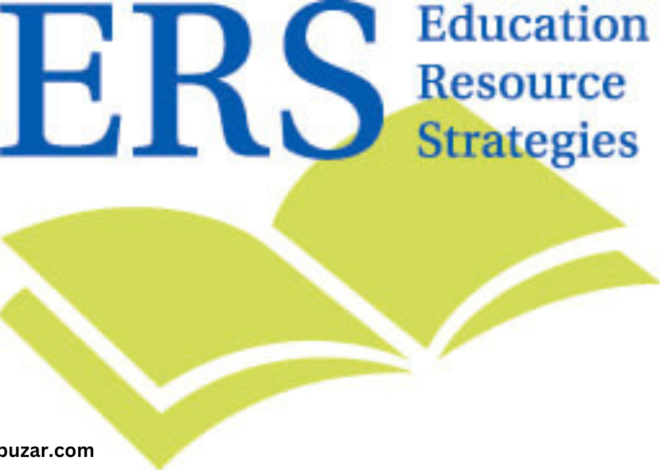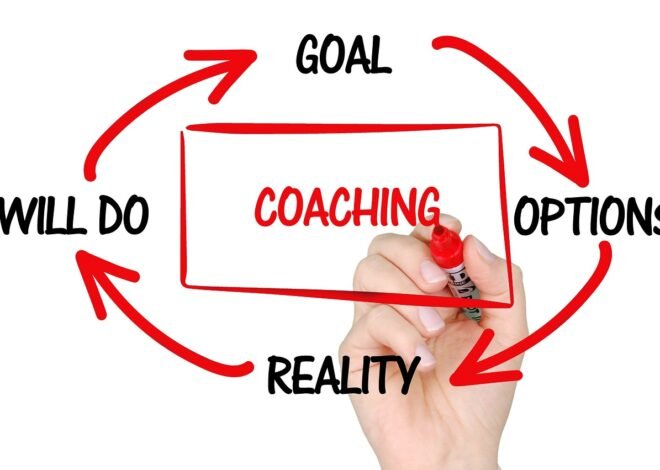
Specialized Learning: Tailoring Education for Success
Education is evolving, and one of the notable shifts is towards specialized learning. This trans formative approach recognizes the unique needs of each learner, breaking away from the conventional one-size-fits-all model. In this article, we delve into the world of specialized learning, exploring its various facets and shedding light on its significance in shaping the future of education.
Types of Specialized Learning:
Individualized Instruction:
Specialized learning begins with individualized instruction, tailoring lessons to the pace and learning style of each student. This allows educators to address specific strengths and weaknesses, fostering a more personalized learning experience.
Adaptive Learning:
Adaptive learning takes customization a step further, utilizing technology to adjust content dynamically based on a student’s progress. This not only personalizes the learning journey but also ensures that learners are consistently challenged at an optimal level.
Project-Based Learning
Another facet of specialized learning is project-based learning, where students engage in hands-on projects that mirror real-world scenarios. This approach enhances critical thinking, problem-solving, and collaborative skills, preparing students for the challenges beyond the classroom.
Benefits of Specialized Learning:
Personalized Approach
Specialized learning recognizes the diverse needs of students, allowing for a personalized approach that considers individual strengths, weaknesses, and learning styles. This fosters a more meaningful and effective educational experience.
Enhanced Engagement
When students find relevance and personal connection in their studies, engagement naturally follows. Specialized learning methods, such as project-based learning, capture students’ interest, making the educational journey more enjoyable and impact.
Improved Retention
Customizing education to align with individual needs not only boosts engagement but also enhances information retention. Specialized learning methods cater to diverse learning styles, ensuring that information is presented in a way that resonates with each student.
Implementing Specialized Learning
Technology Integration
The integration of technology plays a pivotal role in implementing . Educational tools, interactive platforms, and adaptive software empower educators to tailor content and assessments, creating a more adaptive and responsive learning environment.
Teacher Training
Successful implementation of specialized learning requires well-trained educators. Teacher training programs focusing on personalized instruction, technology integration, and assessment strategies are crucial to ensuring effective experiences for students.
Curriculum Customization
. Specialized learning advocates for flexible curriculum customization, enabling schools to adapt content to meet the unique needs and interests of their student body.
Challenges in Specialized Learning
Accessibility
Despite the benefits, ensuring equal access to specialized learning remains a challenge. Issues of technology accessibility, teacher-to-student ratios, and resource disparities must be addressed to make truly inclusive.
Resource Allocation
Implementing learning often requires investments in technology, training, and curriculum development. Proper resource allocation is essential to overcome financial barriers and ensure sustainable, high-quality education.
Assessment Methods
Traditional assessment methods may not align with the diverse ways students demonstrate their understanding in specialized learning environments. Developing innovative assessment methods that capture the essence of personalized learning is an ongoing challenge.
Success Stories
Real-world Applications
Specialized learning has shown success in real-world applications, with students excelling in problem-solving, critical thinking, and creativity. Case studies highlight the positive impact of tailored education on long-term success.
Impact on Student Achievement
Schools that have embraced specialized learning report notable improvements in student achievement. Whether measured through standardized test scores or real-world accomplishments, the benefits of personalized education are evident.
Future Trends
Emerging Technologies
The future of specialized learning is intertwined with emerging technologies. Virtual reality, artificial intelligence, and personalized learning platforms are set to revolutionize the educational landscape, providing even more tailored experiences for students.
Global Perspectives on Specialized Learning
As education becomes increasingly global, diverse perspectives on learning emerge. Collaborative efforts between educators, policymakers, and technologists worldwide contribute to a richer understanding of how learning can be implemented and adapted globally.
Future Challenges and Opportunities
While specialized learning has made significant strides, future challenges and opportunities lie ahead. Adapting to rapidly evolving technologies, addressing the digital divide, and ensuring inclusivity for diverse learners are crucial challenges. On the flip side, these challenges present opportunities for innovation, collaboration, and creating more equitable learning environments.
Inclusive Specialized Learning
Ensuring inclusivity in specialized learning is paramount. Tailoring education to meet the needs of diverse learners, including those with different learning abilities and cultural backgrounds, requires a concerted effort. Inclusive strives to create an educational landscape where every student feels seen, heard, and supported.
Parental Involvement in Specialized Learning
The role of parents in specialized learning cannot be overstated. Collaborative efforts between educators and parents enhance the effectiveness of personalized education. Open communication, understanding the unique needs of each child, and fostering a supportive home environment contribute to a holistic approach to learning.
The Role of Soft Skills in Learning
Beyond academic achievements, specialized learning places a strong emphasis on developing soft skills. Communication, teamwork, adaptability, and resilience are essential in the modern world. learning environments provide the ideal setting for nurturing these skills, preparing students not only for exams but for life’s challenges.
Environmental and Social Responsibility in Education
Specialized learning extends beyond individual achievements; it emphasizes the broader impact on society and the environment. Educators are increasingly incorporating themes of social and environmental responsibility into specialized curricula, preparing students to become responsible global citizens.
Navigating the Challenges: Strategies for Successful Specialized Learning
Addressing the challenges in specialized learning requires strategic planning and innovative solutions. Educators and policymakers must collaborate to implement effective strategies that enhance the overall quality and accessibility of specialized education.
Professional Development for Educators
Empowering educators with continuous professional development is essential. Training programs should focus on the latest teaching methodologies, technology integration, and strategies for personalized instruction. Well-equipped educators are better positioned to create impactful learning experiences.
Community Engagement and Support
Building a strong network of community support is integral to the success of specialized learning initiatives. Engaging parents, local businesses, and community organizations fosters a holistic approach to education. This collaboration ensures that the benefits extend beyond the classroom and into the community.
Flexible Learning Spaces
Creating flexible learning spaces is vital in accommodating diverse learning styles. Classroom environments that support collaboration, hands-on activities, and technology integration contribute to the success of specialized learning. The physical space should be conducive to the interactive and dynamic nature of personalized education.
Adaptive Assessment Strategies
Traditional assessment methods may not align with the personalized nature of specialized learning. Implementing adaptive assessment strategies, such as project-based assessments, portfolios, and peer evaluations, provides a more accurate representation of students’ understanding and capabilities.
Global Collaboration in Education
The future of specialized learning involves global collaboration. Educators and policymakers worldwide should share insights, best practices, and resources to enhance the quality and reach of learning. Learning from diverse perspectives enriches the educational experience for students globally.
Harnessing Artificial Intelligence for Personalization
Artificial Intelligence (AI) holds immense potential in tailoring education to individual needs. AI-powered platforms can analyze students’ learning patterns, provide real-time feedback, and adapt content to optimize the learning journey. Integrating AI into learning ensures a more responsive and personalized educational experience.
Cultivating Lifelong Learners: The Role of Specialized Learning in Higher Education
As students progress to higher education, the principles of specialized learning continue to play a pivotal role in cultivating lifelong learners. The transition from primary and secondary education to university settings requires a seamless integration of personalized learning methodologies to ensure sustained academic success.
Tailoring Higher Education Programs
Specialized learning extends its influence into higher education by tailoring programs to suit students’ career aspirations and individual strengths. Universities are increasingly adopting flexible curricula that allow students to choose specialized tracks aligned with their interests, ensuring a more meaningful and relevant educational experience.
Embracing Technology in Higher Learning
The integration of technology in higher education aligns with the principles of specialized learning. Virtual classrooms, online resources, and interactive platforms enable universities to provide a personalized and adaptive learning environment. This shift towards digital education enhances accessibility and accommodates diverse learning styles.
Fostering Research and Innovation
Specialized learning in higher education emphasizes research and innovation. Universities are encouraged to create environments that nurture curiosity, critical thinking, and problem-solving skills. Students engaged in learning tracks are more likely to contribute to groundbreaking research and innovations in their chosen fields.
Internship and Industry Collaborations
To bridge the gap between academic knowledge and real-world application, specialized learning in higher education often involves collaborations with industries. Internship programs, industry projects, and mentorship opportunities provide students with hands-on experience, preparing them for the challenges and demands of their future careers.
Global Perspectives in Higher Education
As higher education becomes increasingly globalized, specialized learning takes on an international dimension. Universities collaborate across borders, offering students exposure to diverse perspectives and methodologies. This globalized approach enhances students’ adaptability and prepares them for careers in an interconnected world.
Adapting to the Evolving Workforce: Specialized Learning in Professional Development
As individuals enter the workforce, the principles of specialized learning continue to be instrumental in professional development. Adapting to the demands of an ever-evolving job market requires a commitment to lifelong learning and the cultivation of skills that align with specific career paths.
Customized Training Programs
Employers are recognizing the value of learning in professional development. Customized training programs tailored to the needs of individual employees ensure that skills are not only acquired but also applied effectively in the workplace. This approach enhances employee satisfaction and contributes to increased productivity.
Continuous Skill Enhancement
Specialized learning emphasizes the importance of continuous skill enhancement. In a rapidly changing job market, professionals must stay abreast of industry trends and technological advancements. Specialized training programs, workshops, and online courses provide avenues for professionals to continually refine and expand their skill sets.
Leadership Development through Specialized Learning
Leadership development programs increasingly incorporate learning methodologies. Tailoring leadership training to individual strengths and communication styles fosters effective leadership skills. This approach creates a leadership cadre that is not only knowledgeable but also adaptable to diverse workplace scenarios.
Promoting a Culture of Innovation
Incorporating specialized learning into professional development cultivates a culture of innovation within organizations. Employees who engage in continuous learning are more likely to contribute fresh ideas and creative solutions. This culture of innovation positions companies to stay competitive in dynamic industries.
Digital Literacy and Specialized Learning
In an era where digital literacy is paramount, specialized learning plays a crucial role in ensuring professionals are adept at leveraging technology. Training programs focusing on digital skills, data analysis, and cybersecurity contribute to a workforce that is well-equipped to navigate the digital landscape.
Conclusion: A Dynamic Workforce for the Future
Specialized learning is not just a concept limited to educational institutions; it is a cornerstone of building a dynamic and adaptable workforce for the future. By embracing the principles of personalized and continuous learning, professionals can navigate the complexities of their careers with confidence and contribute to the success of their organizations.


